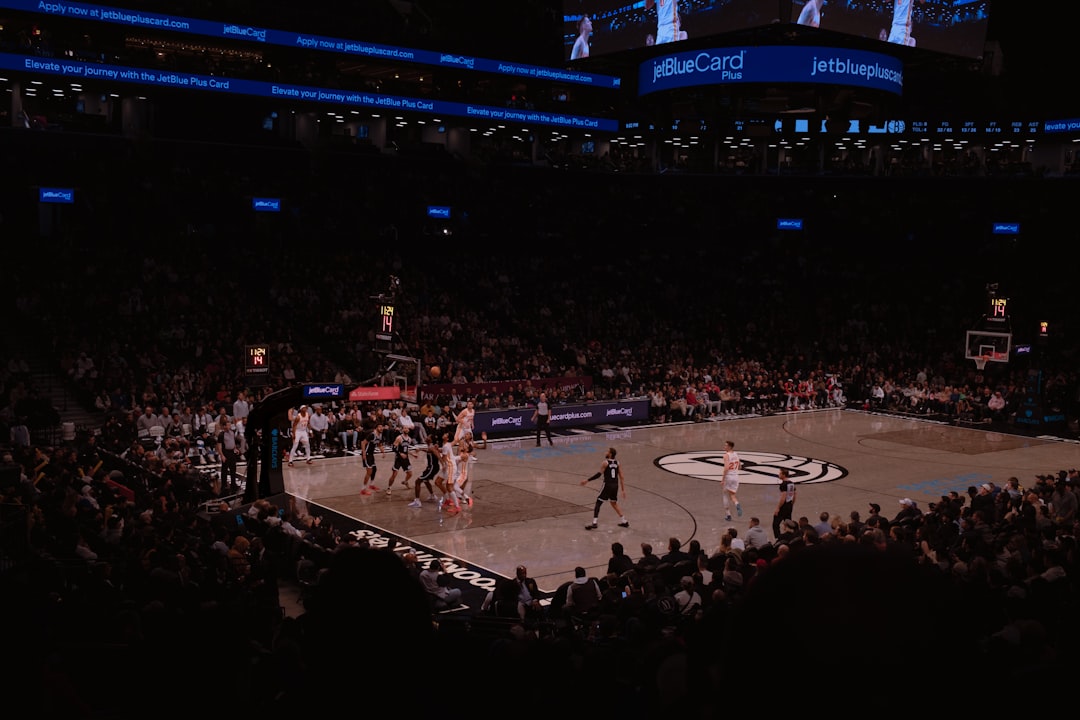In the modern world, the sport industry extends far beyond the playing field. It encompasses a wide range of careers that touch on business, entertainment, media, and athletic development. A degree in Sport Industry is no longer limited to those who aspire to become professional athletes—it has become a gateway to rewarding careers in management, marketing, and coaching. Students who pursue a Sport Industry major gain not only theoretical knowledge about sports but also practical skills and experiences that prepare them for diverse opportunities in this dynamic sector.
Understanding the Sport Industry Major
The Sport Industry major focuses on the business, organizational, and societal aspects of sports. It blends elements of sport science, marketing, finance, event management, and leadership, offering students a well-rounded education. In today’s competitive job market, this versatility allows graduates to adapt to different roles within the sports ecosystem.

Through internships, case studies, and field experiences, students develop a deep insight into how sports organizations function, how sports are marketed, and how teams and athletes are coached and managed. Curricula at many colleges include modules such as:
- Sports Marketing and Promotion
- Facility and Event Management
- Sport Law and Ethics
- Sport Finance and Economics
- Leadership and Coaching Principles
Careers in Sport Management
Sport management is one of the most direct paths for Sport Industry graduates. It involves overseeing the business aspects of sports organizations—including overseeing teams, managing venues, directing operations for events, and coordinating logistics. Professionals in this field may work with organizations ranging from local sports clubs to global franchises like the NBA or Premier League.
Job options in this area include:
- Team Operations Manager
- Event Coordinator
- Sports Agent
- Facility Manager
- Director of Athletics
These roles require knowledge of marketing, finance, human resources, and logistics—all covered in a typical Sport Industry degree program. Because game-day success often depends on behind-the-scenes organization, team owners and directors highly value professionals who are trained in sport management.
Opportunities in Sports Marketing
In today’s digital era, marketing plays a critical role in the growth of any sports organization. Sports marketing professionals are responsible for branding athletes, promoting teams, expanding fan engagement, and negotiating sponsorships. A Sport Industry major offers the foundational skills needed to succeed in these areas, including audience analysis, social media strategy, communication, and campaign development.
Career paths within sports marketing include:
- Marketing Manager
- Brand Strategist
- Digital Media Specialist
- Public Relations Coordinator
- Sponsorship Manager
Graduates who choose this route often work with professional teams, athletic apparel companies, sports media outlets, or branding agencies. Additionally, thanks to the growing influence of athletes on social media, personal brand management has become a highly specialized skill set in sports marketing.

Coaching and Athletic Development
For individuals passionate about athlete performance and mentorship, coaching presents a fulfilling career path. Sport Industry programs often include elements of psychology, leadership, physiology, and training methodologies—all crucial in helping athletes reach their full potential. This knowledge enables future coaches to not just plan practice sessions but also nurture a team’s culture and mental resilience.
Common coaching and development careers:
- Head Coach or Assistant Coach (youth, college, or professional level)
- Sports Performance Trainer
- Player Development Specialist
- Scouting Analyst
- Technical Director
Many coaching positions require certifications or continued education, but a strong foundation in the sport industry gives students a competitive edge. Whether shaping youth athletes or managing professional teams, Sport Industry graduates bring a blend of strategy, empathy, and leadership into their coaching careers.
Real-World Experience and Networking
One of the strengths of a Sport Industry major is its heavy emphasis on experiential learning. Most programs require internships or practicum experiences where students work with team offices, collegiate athletic departments, or marketing agencies. These opportunities help bridge the gap between classroom knowledge and real-world application, often leading to job offers after graduation.
Additionally, the sports world thrives on relationships. Through industry networking events, guest speakers, or alumni mentorship programs, students build connections that are crucial to launching a successful career. Networking can be the difference between sending a cold résumé or receiving a personal recommendation for a job opening.
A Global and Expanding Industry
The global sport industry is valued at over $500 billion, and it’s still growing. As new market segments emerge—such as esports, women’s sports leagues, and international sports tourism—so do career opportunities. Sport Industry majors are uniquely positioned to enter these new fields with the agility provided by their diverse education.

Furthermore, the industry’s reliance on new technologies—from data analytics and artificial intelligence to wearable tech—means that sport professionals are expected to be tech-savvy and adaptable. Forward-thinking Sport Industry programs integrate these trends into their curriculum to prepare students not just for today’s job market, but tomorrow’s as well.
Conclusion
A Sport Industry major is much more than a path into the world of athletics. It’s a multidisciplinary program that develops professionals equipped to work across sports management, marketing, and coaching. Whether one dreams of organizing major sports events, running digital campaigns for a pro team, or coaching the next generation of athletes, this major opens countless doors. With the right passion, education, and persistence, sport industry graduates can shape the future of sports from a variety of impactful roles.
Frequently Asked Questions (FAQ)
- What is a Sport Industry major?
A Sport Industry major is an academic program that combines elements of sports business, management, marketing, and coaching to prepare students for a variety of careers in the sports world. - Are internships required in a Sport Industry program?
Most programs include internships or field experience as part of the curriculum, giving students valuable hands-on knowledge and networking opportunities. - Can graduates work outside of the sports field?
Yes, the skills acquired—such as marketing, leadership, and financial planning—are applicable in many industries beyond sports. - Does the major prepare students for coaching certifications?
While it offers foundational coaching knowledge, students may still need to pursue specific certifications depending on the level and sport they wish to coach. - How competitive is the job market for sports careers?
It can be competitive, but Sport Industry graduates with strong internship experiences, professional networks, and practical skills have a significant advantage.
